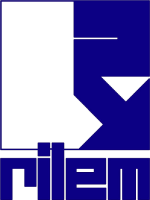Publications
Pro096
EVALUATION OF CHLORIDE ION PENETRATION METHODS IN CONCRETE WITH RECYCLED CONCRETE AGGREGATE AND RICE HUSK ASH
Author(s): Kulakowski, M. P., Fedumenti, M. B., Kazmierczak, C. S. and Mancio, M.
Paper category: Conference
Book title: XIII International Conference on Durability of Building Materials and Components - XIII DBMC
Editor(s): Marco Quattrone, Vanderley M. John
Print ISBN: none
e-ISBN: 978-2-35158-149-0
Publication year: 2015
Pages: 695-702
Total Pages: 8
Language: English
Abstract: The use of recycled concrete aggregate as replacement of natural aggregate has been gaining increased attention due to the vast amounts of non-renewable raw materials used globally for concrete production. However, it has been shown that such recycled aggregate can increase concrete permeability and thus reduce its durability. Rice husk ash has been employed as a supplementary material in Portland cement concrete to enhance concrete sustainability and durability. The aim of this research was to study the influence of rice husk ash on the chloride penetration in concrete made with recycled concrete aggregate. Recycled concrete aggregate was used in amounts of 25% and 50% (as replacement of natural aggregate), while rice husk ash was employed as partial replacement of Portland cement in 10% and 20% rates. The materials’ resistance to chloride ingress was tested with the ASTM C1202 test method and with the NT Build 492 method, an alternative test has gained increased acceptance for being less aggressive than the still widely-used but often criticized ASTM procedure. The best performance was obtained in concrete with 50% of recycled concrete aggregate and 20% of rice husk ash. This concrete had its resistance against chloride ingress improved in average 91% when tested according to the ASTM C1202 and 64% when tested by the NT Build 492 method, as compared to concrete produced with 50% of recycled concrete aggregate without rice husk ash.
Online publication: 2015
Publication Type: full_text
Public price (Euros): 0.00
>> You must be connected to view the paper. You can register for free if you are not a member


